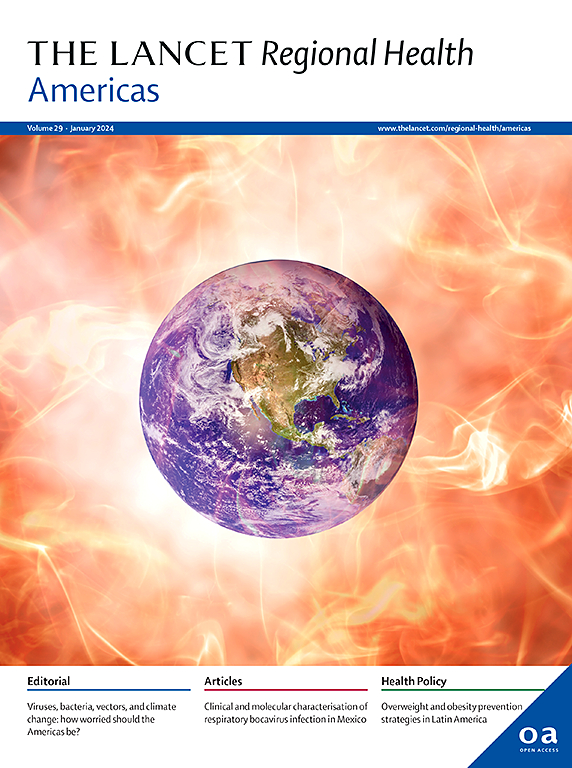产后肾病与胎盘早剥相关:一项基于人群的回顾性队列研究
IF 7
Q1 HEALTH CARE SCIENCES & SERVICES
引用次数: 0
摘要
背景:胎盘早剥可导致肾脏失代偿,包括弥散性血管内凝血,以及细胞因子和血管活性物质的释放,导致肾脏损害。尽管有很强的生物学合理性,但这种肾脏损害是否在产后持续存在尚不清楚。该研究的目的是检查早剥和肾脏疾病住院之间的关系,以及这些风险是否会因妊娠高血压疾病(HDP)而改变。方法:我们设计了一项基于人群的回顾性队列研究,研究2010-2020年美国医院分娩和再入院情况。在同一日历年内,对所有有和没有早剥诊断的医院分娩的人进行了肾脏疾病再入院随访。我们拟合Cox比例风险模型来估计基于两个结果的相关性:致死性或非致死性肾脏疾病和住院死亡率。我们评估了HDP是否改变了这些风险。在17826,038例分娩住院患者中,194,740例(1.1%)合并早剥。早剥和非早剥分娩的中位随访时间为6.4个月(四分位数间距3.7,9.2)。早剥组和非早剥组以急性肾损伤(AKI)诊断住院的比率分别为236 / 10万和106 / 10万(校正风险比[HR] 1.7, 95%可信区间[CI], 1.5-1.9)。在早剥组和非早剥组中,相应的慢性肾脏疾病(CKD)住院率分别为82 / 100,000和25 / 100,000 (HR 2.1, 95% CI, 1.6-2.7)。与早剥相关的AKI死亡率的HR为4.1 (95% CI, 2.8-6.1)。在没有HDP诊断的患者中,与早剥相关的肾脏疾病风险较高;这些风险在HDP患者中要高得多。这项基于人群的研究表明,即使没有HDP,胎盘早剥也与AKI和CKD住院的短期产后风险增加有关。HDP患者的这些风险更高。这项研究强调了密切产后监测诊断为胎盘早剥的患者在怀孕期间发生肾脏疾病风险的重要性。阐明这些风险是否在产后持续并延伸到产妇生命过程中也很重要。本文章由计算机程序翻译,如有差异,请以英文原文为准。
Postpartum kidney disease associated with placental abruption: a population-based retrospective cohort study
Background
Placental abruption can lead to renal decompensation, including disseminated intravascular coagulation, and the release of cytokines and vasoactive substances, causing kidney damage. Despite the strong biological plausibility, whether this renal damage persists in the postpartum period is unknown. The aims of the study were to examine the association between abruption and kidney disease hospitalisation, and whether these risks are modified by hypertensive disorders of pregnancy (HDP).
Methods
We designed a population-based retrospective cohort study of hospital deliveries and readmissions in the US, 2010–2020. All persons who had a hospital delivery with and without an abruption diagnosis were followed up for readmission for kidney disease in the same calendar year. We fit Cox proportional hazards models to estimate the associations based on two outcomes: fatal or non-fatal kidney disease and in-hospital mortality. We evaluated whether HDP modified these risks.
Findings
Of 17,826,038 delivery hospitalisations, 194,740 (1.1%) were complicated by abruption. The median follow-up after delivery was 6.4 months (interquartile range, 3.7, 9.2) among abruption and non-abruption deliveries. The rates of hospitalisations with an acute kidney injury (AKI) diagnosis among abruption and non-abruption groups were 236 and 106 per 100,000 hospitalisations, respectively (adjusted hazard ratio [HR] 1.7, 95% confidence interval [CI], 1.5–1.9). The corresponding rates for hospitalisations with chronic kidney disease (CKD) diagnosis among abruption and non-abruption groups were 82 and 25 per 100,000 hospitalisations, respectively (HR 2.1, 95% CI, 1.6–2.7). The HR for AKI mortality associated with abruption was 4.1 (95% CI, 2.8–6.1). Kidney disease risks related to abruption were high among those without an HDP diagnosis; these risks were substantially higher among persons with HDP.
Interpretation
This population-based study shows that placental abruption, even in the absence of HDP, is associated with increased short-term postpartum risks of AKI and CKD hospitalisations. These risks are higher in the presence of HDP. This study underscores the importance of close postpartum monitoring of patients diagnosed with placental abruption in their pregnancies for the risk of kidney disease. It is also essential to elucidate whether these risks persist beyond the postpartum period and extend to the maternal life course.
Funding
None.
求助全文
通过发布文献求助,成功后即可免费获取论文全文。
去求助
来源期刊

Lancet Regional Health-Americas
Multiple-
CiteScore
8.00
自引率
0.00%
发文量
0
期刊介绍:
The Lancet Regional Health – Americas, an open-access journal, contributes to The Lancet's global initiative by focusing on health-care quality and access in the Americas. It aims to advance clinical practice and health policy in the region, promoting better health outcomes. The journal publishes high-quality original research advocating change or shedding light on clinical practice and health policy. It welcomes submissions on various regional health topics, including infectious diseases, non-communicable diseases, child and adolescent health, maternal and reproductive health, emergency care, health policy, and health equity.
 求助内容:
求助内容: 应助结果提醒方式:
应助结果提醒方式:


